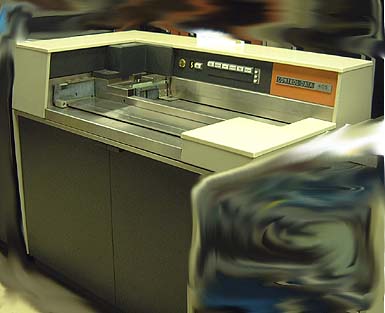1944GPW
Veteran Member
I just saw this on Slashdot - an interesting article on reading punched cards using Lego, an Arduino, a digital camera and some image processing in Python:
http://codeincluded.blogspot.co.nz/2012/07/punch-card-reader-hardware.html
http://codeincluded.blogspot.co.nz/2012/07/punch-card-reader-hardware.html

